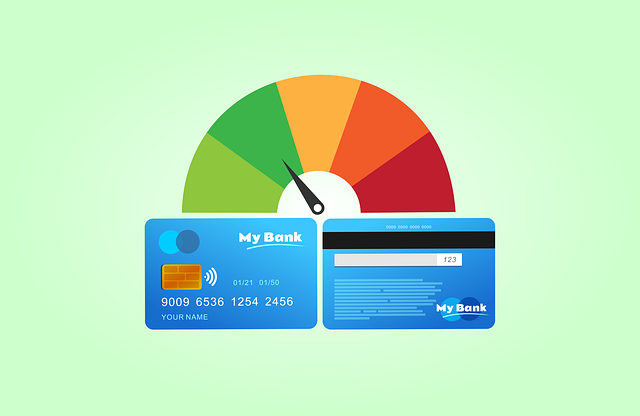Working capital loans offer short-term financing for immediate business expenses like inventory and payroll, ideal when cash reserves are low but stable revenue and strong credit history exist. Key requirements include demonstrated financial stability, clear business objectives, and a solid business plan. Businesses must assess their financial needs, evaluate credit history and revenue streams, and present strong financial health through clear cash flow projections and organized records to increase approval chances. Understanding and meeting working capital loan requirements ensures access to funding for sustainable growth.
“Unsure if a working capital loan is right for your business? This comprehensive guide explores when and why you might need such financing. We’ll walk you through assessing your business’s unique needs and eligibility, delving into key factors lenders consider. Learn strategic tips to enhance your chances of securing the funds required to fuel growth and navigate seasonal fluctuations. By understanding working capital loan requirements, you’ll be better equipped to make an informed decision for your company’s future.”
- Understanding Working Capital Loans: When and Why You Might Need One
- Assessing Your Business Needs and Eligibility for a Working Capital Loan
- Key Factors and Requirements Lenders Consider Before Approving the Loan
- Strategies to Improve Your Chances of Securing a Working Capital Loan
Understanding Working Capital Loans: When and Why You Might Need One

Understanding Working Capital Loans: When and Why You Might Need One
Working capital loans are short-term financing options designed to help businesses cover their immediate operating expenses, such as inventory purchases, payroll, or other day-to-day operational costs. They differ from long-term business loans in that they focus on providing the cash flow needed to keep a company running smoothly. These loans can be particularly beneficial when a business experiences a temporary cash crunch due to seasonal fluctuations, unexpected expenses, or delayed customer payments.
Knowing when to apply for a working capital loan is crucial. Business owners should consider it when their current cash reserves are insufficient to meet immediate demands, but they have a solid history of revenue generation and strong credit scores. The loan requirements typically include demonstrating stable financial performance, clear business objectives, and the ability to repay the loan promptly. By accessing this type of financing, businesses can maintain their operations, capitalize on market opportunities, or weather unexpected challenges without sacrificing long-term growth prospects.
Assessing Your Business Needs and Eligibility for a Working Capital Loan

Assessing your business’s immediate and short-term needs is a crucial step before applying for a working capital loan. This type of financing is designed to cover operational expenses, such as inventory purchases, accounts payable, or cash flow gaps during peak seasons. If you notice consistent cash flow issues or seasonal fluctuations that require additional funds to maintain daily operations, a working capital loan might be an appropriate solution. It’s essential to evaluate your business’s financial health and growth prospects to ensure you meet the working capital loan requirements.
To determine eligibility, businesses should consider their credit history, revenue streams, and current debt obligations. Lenders typically assess factors like credit score, revenue consistency, and cash flow management when evaluating applications. A solid business plan demonstrating manageable debt and a clear path for repayment increases the chances of approval. Understanding your business’s financial needs and aligning them with the working capital loan requirements will set you up for success in securing the necessary funding.
Key Factors and Requirements Lenders Consider Before Approving the Loan

When businesses consider a working capital loan, several key factors and requirements come into play that lenders scrutinize before approving funding. These include the borrower’s credit history and score, as a strong credit profile indicates lower risk for the lender. Lenders also evaluate the business’s financial health by examining its revenue streams, cash flow patterns, and debt obligations to ensure the company can comfortably service additional debt.
The stability and growth prospects of the business are equally important. Consistent revenue growth, positive cash flows, and a solid business plan demonstrating future profitability enhance the loan applicant’s chances of approval. Lenders may also require collateral, such as assets or inventory, to secure the loan, providing them with a safety net in case of default. Additionally, the purpose and intended use of the funds play a role; lenders prefer loans for operational needs rather than non-business purposes, ensuring the capital contributes to the business’s growth and sustainability.
Strategies to Improve Your Chances of Securing a Working Capital Loan

To improve your chances of securing a working capital loan, start by ensuring your business has strong financial health and clear cash flow projections. Lenders want to see consistent revenue streams and positive cash flows, so organize and present your financial records meticulously. Regularly reviewing and understanding your financial statements will help you identify areas for improvement and demonstrate your financial acumen to potential lenders.
Additionally, focus on maintaining a solid business plan and realistic short-term goals. Lenders assess the viability of your business and its future prospects. A well-structured business plan that outlines growth strategies, market analysis, and risk mitigation plans can strengthen your application. Keep an open line of communication with lenders by providing them with regular updates on your business’s performance and any changes in circumstances that may impact your loan repayment capacity.






